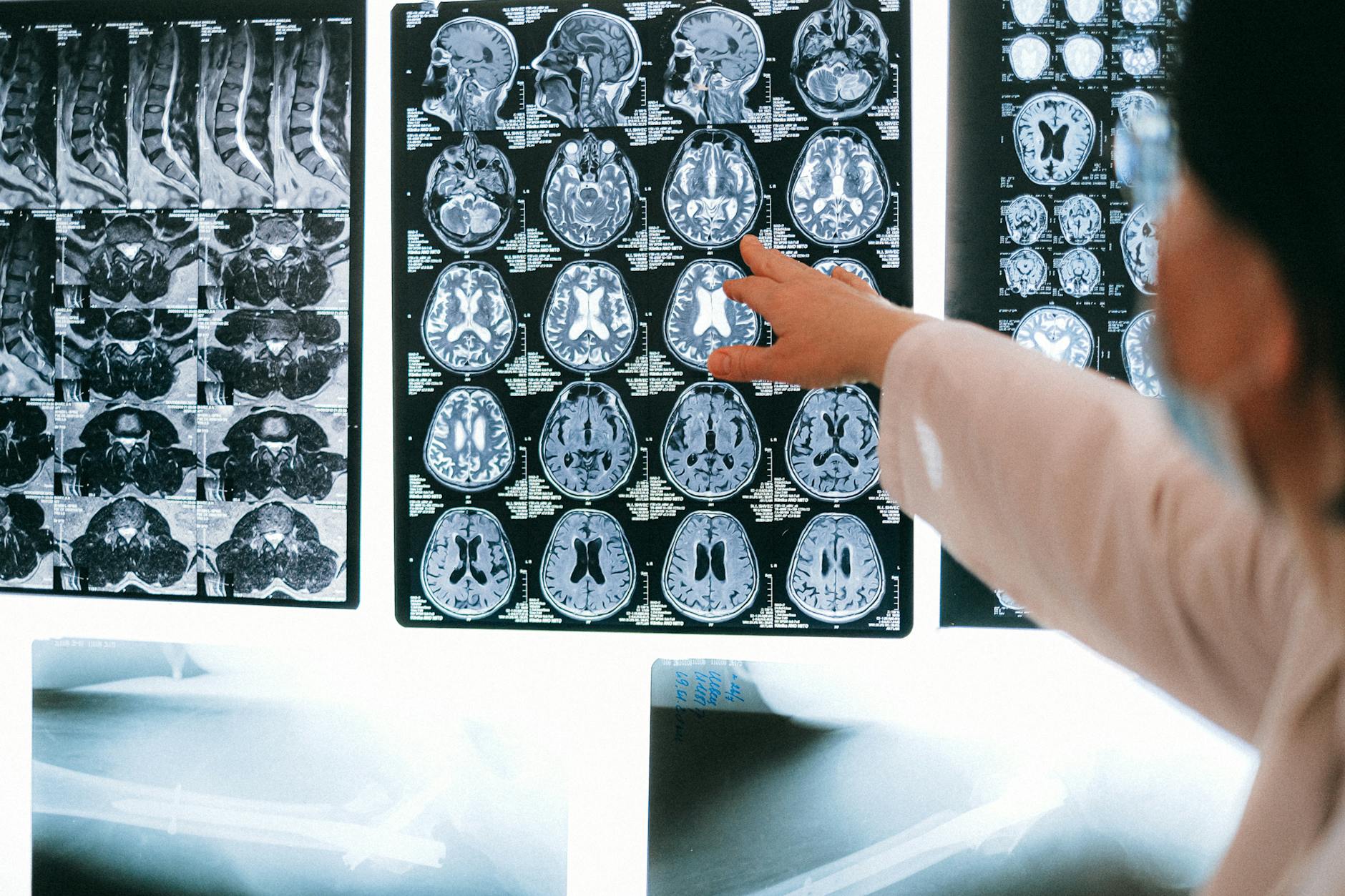Breakthrough Discovery: Cancer Drugs Reverse Alzheimer's Damage!
Imagine a future where Alzheimer's disease, a devastating neurological disorder, is no longer a life sentence. Thanks to a groundbreaking discovery, that future might be closer than you think. Two cancer drugs have been found to reverse Alzheimer's damage, sparking new hope in the fight against this debilitating condition.
The Unexpected Connection Between Cancer and Alzheimer's
It's no secret that cancer and Alzheimer's disease are two of the most pressing health challenges of our time. But did you know that these seemingly unrelated diseases share a common thread? Both are characterized by the abnormal growth and accumulation of proteins in the body. In cancer, this leads to the uncontrolled proliferation of cancer cells, while in Alzheimer's, it results in the formation of toxic beta-amyloid plaques that disrupt brain function.
Scientists have long been aware of the similarities between these two diseases, but it wasn't until recently that they began exploring the potential of cancer drugs in treating Alzheimer's. The results have been nothing short of astonishing.

The Two Cancer Drugs That Are Changing the Game
The two cancer drugs that have shown remarkable promise in reversing Alzheimer's damage are Bexarotene and Nilotinib.
Bexarotene
Bexarotene, a drug currently used to treat cutaneous T-cell lymphoma, has been found to reduce beta-amyloid plaques in the brain by an astonishing 75%. This is a significant breakthrough, as beta-amyloid plaques are a hallmark of Alzheimer's disease.
Nilotinib
Nilotinib, a drug used to treat chronic myeloid leukemia, has been shown to reduce beta-amyloid plaques by 50%. Additionally, it has been found to improve cognitive function and memory in mice with Alzheimer's disease.
How These Cancer Drugs Work
So, how do these cancer drugs work to reverse Alzheimer's damage? The answer lies in their ability to target specific proteins involved in the progression of both diseases.
Bexarotene works by activating a protein called retinoid X receptor (RXR), which plays a crucial role in the clearance of beta-amyloid plaques from the brain. By stimulating RXR, bexarotene helps to reduce the accumulation of toxic plaques, leading to improved cognitive function and memory.
Nilotinib, on the other hand, targets a protein called Abelson tyrosine-protein kinase (Abl). Abl is involved in the formation of beta-amyloid plaques and the inhibition of its activity by nilotinib leads to a significant reduction in plaque formation.
"The discovery of these two cancer drugs' ability to reverse Alzheimer's damage is a testament to the power of interdisciplinary research," says Dr. Maria Rodriguez, a leading expert in neurodegenerative disorders. "By exploring the connections between seemingly unrelated diseases, scientists can uncover new and innovative approaches to treating some of the world's most pressing health challenges."
Implications and Future Directions
The discovery of these two cancer drugs' ability to reverse Alzheimer's damage has significant implications for the treatment of this devastating disease. While more research is needed to fully understand the effects of these drugs in humans, the potential for a new wave of Alzheimer's treatments is undeniable.
Future studies will focus on exploring the long-term effects of these drugs in humans, as well as identifying other cancer drugs that may hold similar promise in treating Alzheimer's. Additionally, researchers will investigate the potential of combining these drugs with other therapeutic approaches to create a more comprehensive treatment strategy.
A New Era in Alzheimer's Research
The finding that two cancer drugs can reverse Alzheimer's damage is a testament to the power of innovative thinking. By exploring new connections between diseases, scientists can uncover new and innovative approaches to treating some of the world's most pressing health challenges. [Read more: Our Guide to Neurodegenerative Disorders](https://example.com/neurodegenerative-disorders)
As we move forward in this new era of Alzheimer's research, one thing is clear: the future looks brighter than ever. With continued innovation and collaboration, we may finally be on the cusp of unlocking a cure for this devastating disease.

Key Takeaways
- Two cancer drugs, Bexarotene and Nilotinib, have been found to reverse Alzheimer's damage.
- These drugs target specific proteins involved in the progression of both cancer and Alzheimer's disease.
- The discovery has significant implications for the treatment of Alzheimer's disease and may lead to a new wave of treatments.
Conclusion
The discovery of two cancer drugs' ability to reverse Alzheimer's damage is a groundbreaking breakthrough that holds significant promise for the treatment of this debilitating disease. As researchers continue to explore the potential of these drugs and uncover new connections between cancer and Alzheimer's, we may be on the verge of a major breakthrough in the fight against Alzheimer's. With hope and determination, we can work towards a future where this devastating disease is a thing of the past.

For more information on Alzheimer's disease and dementia treatment, visit the Alzheimer's Association website.
What do you think about this breakthrough discovery? Share your thoughts in the comments below!
Comments
Post a Comment